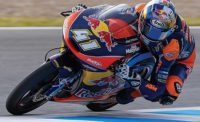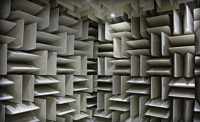Premium Alloy Proves a Winning Material for EPFLoop




Love him or hate him, Elon Musk is a visionary. In May 2002, he founded SpaceX, an aerospace manufacturer and space transportation services company. Then he helped begin Tesla Inc., an American automotive and energy company, before becoming its leader after the Great Recession of 2008.
More recently, he and engineers from both companies developed a new concept of transportation called the Hyperloop. In this system, people and freight are placed in pods that move quickly along a rail through a tube (or loop) above or below ground to avoid the dangers of grade crossings.
About four years ago, SpaceX engineers began its own search for visionaries related to the Hyperloop concept. They did this by establishing the Hyperloop Pod Competition for college students and sponsoring the first event in January 2017.
The Ecole Polytechnique Federale de Lausanne, a research institute and university in Lausanne, Switzerland, did not enter a team in the inaugural event or second competition in August 2017. But, the university did enter its EPFLoop pod in the third event in July 2018 and captured third place with a pod speed of 52 mph.
Material sciences company Allite Inc. took note of this achievement and partnered with the 25-person EPFLoop team to help it for the 2019 competition. Allite provided its Super Magnesium, a premium alloy, to the team to make parts and further reduce the weight of its Bella Lui second-generation pod.
These parts include stability plates, as well as braking components like calipers. Without airflow in the testing tube, there is no dissipation of heat when the pod slows down—leading to extreme high temperatures. The calipers help reduce heat buildup to ensure that the pod does not become damaged.
Overall, the revised pod is 2.1 meters long and 130 kilograms lighter than the 2018 version, which weighed 300 kilograms. This design change enabled EPFLoop to achieve a speed of 148 mph—good enough for third place in this year’s contest, which concluded July 21 in Hawthorne, CA.
“Our team continues to be impressed and inspired by the EPFLoop students, and are excited to support them as they continue to explore the future of transportation,” says Morten Kristiansen, vice president of products and marketing at Allite. “We’re so proud of the EPFLoop team for their third-place finish.”
Each year, the top 20 or so teams worldwide are invited to the California testing facility for a week-long competition, during which participants get to test their small-prototype hyperloop pod designs on a mile-long track. The top four teams coming out of the week get to run their pods on the track under vacuum at the final event.
This year’s winner, Team TUM from the Technical University of Munich, reached a record top speed of 288 mph. Team TUM has won all four events to date, with previous winning speeds of 58, 201 and 284 mph.
The competing teams were further challenged this year in two ways. First, they had to use their own communication systems. Also, they had to be able to propel their pods to within 100 feet of the far end of the tube before they stopped.
Allite’s Super Magnesium is lighter and stiffer than aluminum, and less expensive than carbon fiber with a low carbon footprint. The material is already being used in several industries, including sporting goods, aerospace and automotive.
For more information, call 937-696-7347 or visit www.alliteinc.com.
Looking for a reprint of this article?
From high-res PDFs to custom plaques, order your copy today!








